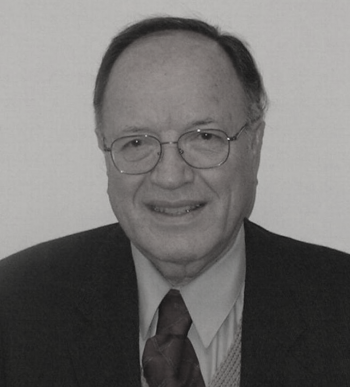Joseph Kohn

Joseph Kohn was born in 1932 in Prague, where his father was a distinguished architect. His family emigrated to Ecuador in 1939 and then moved on to New York City in 1945. He graduated from Brooklyn Technical High School and then entered Massachusetts Institute of Technology. Surrounded by other hotshot freshmen at MIT, honors graduates, award winners, and the like, he stood out: he was an Eagle Scout. He enrolled in graduate school at Princeton in 1954 and earned his PhD degree in mathematics in 1957. He spent a year as instructor in mathematics in Princeton before moving to Brandeis University, where he served as professor and chair of the Mathematics Department. He returned to Princeton as professor of mathematics in 1968 and served twice as chair of the Mathematics Department before retiring in 2008. He was a tremendous source of common sense and good advice and often appropriate (or inappropriate) jokes. His diplomatic skills developed over the years, so that at Princeton he became known as a wonderful chairman. While his mathematics expanded exponentially, his joke reservoir increased at a less than linear speed, and his friends could always rely on the good old standards.
Joe spoke many languages fluently, which served him well at the many institutions he visited. He was a visiting professor at Harvard University, the University of Mexico, the University of Buenos Aires, the University of Florence, the Institut des Hautes Études Scientifiques in Paris, and the Charles University in Prague. He was also a visiting scholar at the Institute for Advanced Study four times over his career, as a postdoctoral researcher in 1957-58 and 1961-62, then during his 1976-77 and 1988-89 sabbatical years.
Among his many honors, Joe won a Guggenheim Fellowship in 1976, the Leroy P. Steele Prize of the American Mathematical Society (AMS) in 1979, the Balzano Medal from the Czechoslovak Mathematics and Physics Society in 1990, and the Stefan Bergman Prize for Influential Research from the AMS in 2004. He was elected to the American Academy of Arts and Sciences in 1966 and to the National Academy of Science in 1988.
He served as editor or on the editorial boards of Advances in Mathematics, the Annals of Mathematics, the Journal of Differential Geometry, and the Transactions of the American Mathematical Society. He served as a member of the Board of Trustees of the American Mathematical Society and the Board of the Mathematical Sciences of the National Academy of Science.
He was a member of the first delegation of American scientists to visit China, in 1976, and he participated in scientific exchange programs with the USSR (1965) and Czechoslovakia (1967 and 1977). When the University of Bologna celebrated its 900th anniversary, they awarded Kohn an honorary doctorate, calling him “one of the most eminent living mathematicians.”
Joe was a major figure in the modern theory of functions of several complex variables. The theory of analytic functions of a single complex variable is one of the great achievements of 19th century mathematics. It shows that several apparently unrelated two-dimensional problems, including electrostatics, fluid flow and map making, are really the same thing in different disguises. The applications of complex variables range from number theory to engineering. However, the classical subject is limited to two dimensions. Several Complex Variables, studied intensively in the 20th and 21rst centuries, explores what happens in higher dimensions. The problems become much harder, and new phenomena arise. The basic objects in Several Complex Variables (holomorphic functions and forms) live on domains, whose exact shapes exert a crucial influence. For domains with the most favorable geometry ("strictly pseudoconvex"), Kohn solved the basic partial differential equations that lie at the heart of the matter. For domains with less favorable geometry ("weakly pseudoconvex"), those equations present very hard problems, still not fully understood; however, a lot is known thanks to the work of Kohn and his former students. His work continues to exert a profound influence on mathematics.
Joe also had a profound effect on his many graduate students and the even greater number of excellent younger mathematicians for whom he served as mentor and source of good sound advice and good sound mathematical problems.
Memorial Resolution Committee:
Charles Fefferman
Robert Gunning
William Browder